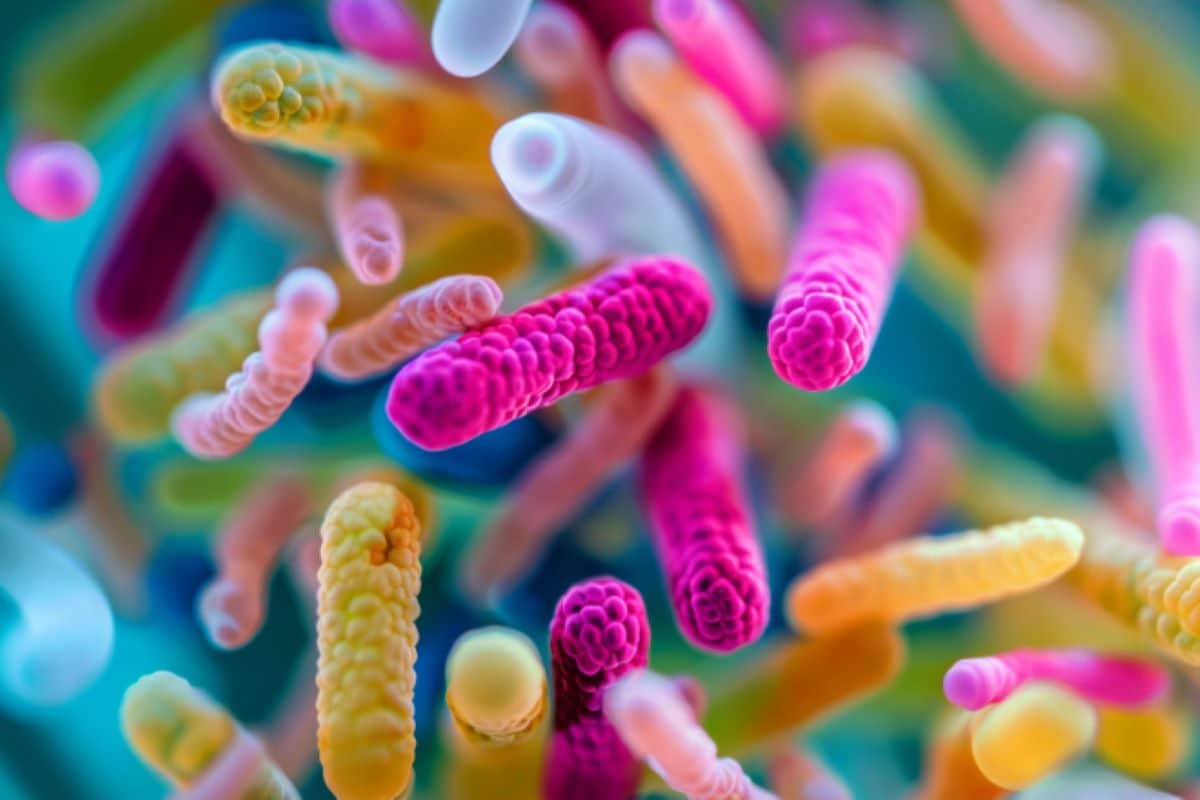Hopefully your competent? doctor will give exact amounts of probiotics and nutritional supplements and the type to buy.
Gut Bacteria’s Link to Alzheimer’s Explored
Summary: Researchers are investigating the connection between gut bacteria and Alzheimer’s disease. They believe harmful metabolites from bad bacteria can travel to the brain, causing inflammation and potentially triggering dementia.
The study aims to develop drug therapies to block these metabolites and explore the use of probiotics and nutritional supplements to promote gut health and potentially prevent or slow down Alzheimer’s progression.
Key Facts:
- Harmful gut bacteria may trigger and accelerate Alzheimer’s disease.
- A poor diet, aging, and lack of exercise can contribute to unhealthy gut bacteria.
- Probiotics and nutritional supplements could help combat bad bacteria and protect the brain.
Source: University of South Australia
The phrase ‘you are what you eat’ was coined almost a century before Alois Alzheimer made his breakthrough in identifying brain disease, but the evidence is now clear that diet, as well as age, influences the brain.
A growing body of research suggests a correlation between Alzheimer’s disease and an unhealthy gut, and Australian scientists are hoping to take this a step further by exploring how harmful gut bacteria access the brain and lead to dementia.

University of South Australia nano bio-scientist Dr. Ibrahim Javed says tiny metabolites released by bad bacteria in the gut can travel to the brain, causing inflammation and triggering Alzheimer’s disease, for which there is no cure.
In younger people, this is less likely because the blood-brain barrier is much stronger, but this weakens as people age, allowing harmful substances to damage neurons. When the microbiome in the gut ages, it also loses the ability to fight disease.
By identifying how metabolites released by bad bacteria damage neurons—and hopefully developing new drug therapies to block them—Dr. Javed says it should be possible to slow down or halt the progression of Alzheimer’s.
A second aim of the three-year research project is to investigate how probiotics and nutritional supplements, both of which contain friendly bacteria, can stamp out bad bacteria and stop metabolites from escaping from the gut.
This follows on from several international clinical research studies that have demonstrated that probiotics improve digestive and cognitive issues in people with acute and chronic COVID-19.
Did you know that a poor diet can accelerate your chances of developing Alzheimer’s disease?
An unhealthy gut produces bad bacteria, which releases tiny metabolites that travel to the brain, causing inflammation.
Scientists at the University of South Australia are exploring how probiotics and nutritional supplements – both of which contain friendly bacteria – can stamp out bad bacteria and stop metabolites from escaping the gut and accessing the brain. A poor diet is just one of several factors that harms gut bacteria.
Aging, lack of exercise, exposure to pesticides and genetics also play a role. Credit: University of South Australia
“Our research indicates that harmful gut bacteria can trigger early onset dementia as well as accelerate dementia in patients already battling the neurodegenerative disease,” Dr. Javed says.
“A poor diet is one of several factors that harms gut bacteria, increasing your chances of developing dementia. Aging, lack of exercise, exposure to pesticides and genetics also play a role, although the latter is responsible for a very small number of cases. In most cases, dementia is preventable.”
Most types of bacteria are harmless—many are even essential for our survival—but bad bacteria create biofilms which cause gastrointestinal infections, chronic diseases, bowel cancer and brain diseases.
Alzheimer’s disease affects up to 55 million people worldwide and with an aging population, this number is expected to double every 20 years, according to Alzheimer’s Disease International.
Early onset dementia—under the age of 65—is becoming more common in the global population, attributed to preventable factors such as a poor diet and a sedentary lifestyle, smoking, excessive alcohol consumption, social isolation, exposure to pesticides and air pollution.
Dr. Javed’s team is also collaborating with UniSA neuroscientist Associate Professor Larisa Bobrovskaya on a potential link between stress and Alzheimer’s disease, and whether women are more at risk.
About this Alzheimer’s disease and microbiome research news
Author: Ibrahim Javed
Source: University of South Australia
Contact: Ibrahim Javed – University of South Australia
Image: The image is credited to Neuroscience News
No comments:
Post a Comment